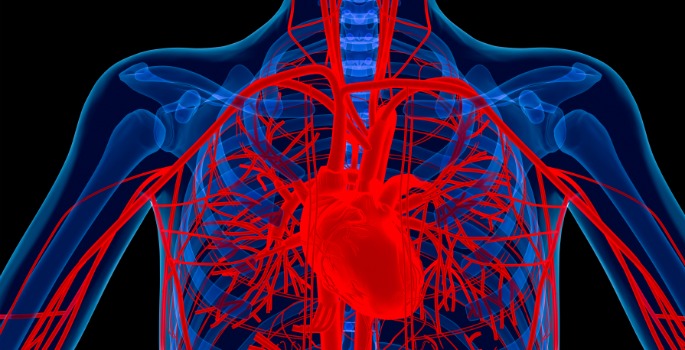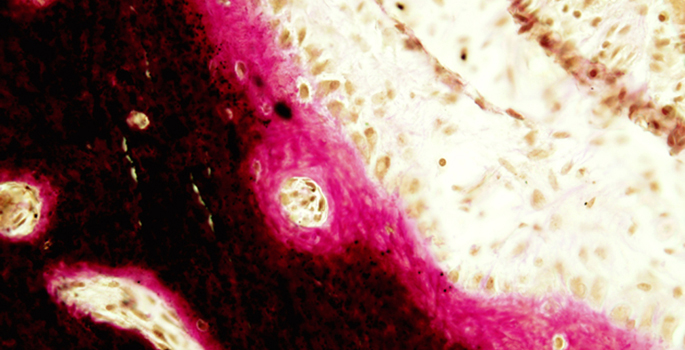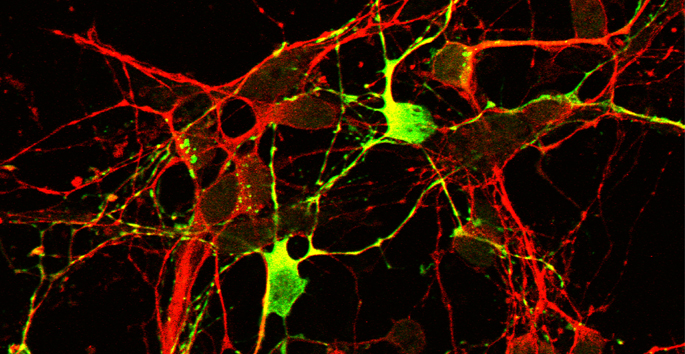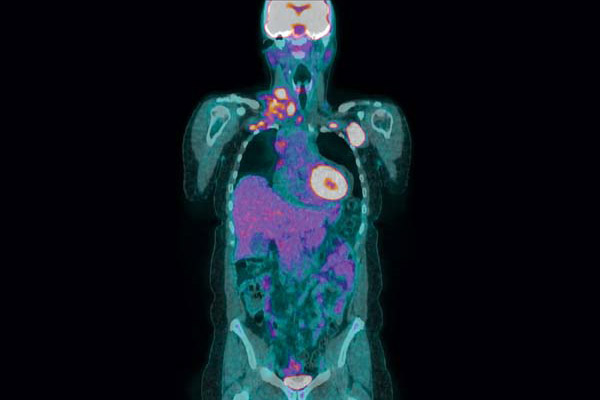Leigh MacMillan
-

Study finds coronary arteries hold heart-regenerating cells
Endothelial cells residing in the coronary arteries can function as cardiac stem cells to produce new heart muscle tissue, Vanderbilt University investigators have discovered. Read MoreAug 20, 2014
-

Keeping an eye on blast trauma
Understanding the cellular and molecular responses of the eye to blast injury could guide new treatment development. Read MoreAug 19, 2014
-

Weight regain after gastric bypass
Early weight regain after gastric bypass surgery does not reverse metabolic improvements, and the "hunger hormone" ghrelin might indicate who is susceptible to weight regain. Read MoreAug 15, 2014
-

Novel treatment strengthens bones in genetic disease
An enzyme therapy may prevent skeletal abnormalities associated with the genetic disorder neurofibromatosis type-1, Vanderbilt investigators have discovered. Read MoreAug 7, 2014
-

Cassat lands Burroughs Wellcome Fund award
James Cassat, M.D., Ph.D., assistant professor of Pediatrics and Pathology, Microbiology and Immunology, has received a Burroughs Wellcome Fund (BWF) Career Award for Medical Scientists. Read MoreJul 31, 2014
-

New target for breast cancer therapy
The protein MTBP is overexpressed in an aggressive type of breast cancer, and it regulates another protein implicated in many cancer types, suggesting that it may be a good target for new therapeutics. Read MoreJul 31, 2014
-

Treatments for frog fungus
The fungicide amphotericin B may be a useful treatment for a frog fungus that is killing amphibians worldwide. Read MoreJul 25, 2014
-

Natural killer cells don’t clear HMPV
Understanding how the immune system responds to the respiratory virus HMPV is crucial for developing vaccines and anti-viral treatments. Read MoreJul 23, 2014
-

Reversing stress-induced anxiety
Augmenting the signals of natural “endocannabinoids” in the brain may be a promising approach for treating mood and anxiety disorders. Read MoreJul 21, 2014
-

Neural receptor for reovirus
A newly identified receptor allows mammalian reovirus to infect neurons, shedding light on factors important for viral encephalitis. Read MoreJul 18, 2014
-

Regulating immune regulators
Understanding how to control the generation of regulatory T cells could have important implications for treating autoimmunity and cancer. Read MoreJul 17, 2014
-

Molecular ‘chat’ holds kidney fibrosis clues
A novel molecular “conversation” regulates kidney fibrosis – the final result of end-stage chronic kidney disease – suggesting new treatment options for this currently irreversible process. Read MoreJul 10, 2014
-

Study finds ‘hot’ frogs fight off fungal pathogen
Simple heat treatments may give the frog immune system a boost and help it fight off a deadly fungal pathogen, according to a new study published July 10 in the journal Nature. Read MoreJul 9, 2014
-

Bringing Cancer to Light: Radiology’s invisible energies play lead role in cancer care
It all started with a faint glow. It was November 1895, and the German physicist Wilhelm Roentgen was experimenting with an early cathode ray tube—a vacuum tube with a contained electric current. During his experiments he noticed an odd fluorescence in crystals on a nearby table. Surprisingly, the glow continued even… Read MoreJul 7, 2014
-

Factor impacts bone toughness
The factor ATF4 has a role in the toughness of bone and its resistance to fracture, suggesting new therapeutic targets. Read MoreJun 16, 2014
-

How ABC transporters move molecules
New views of how transporters move molecules across cell membranes are key to understanding how these proteins impact tumor cell drug resistance and inherited diseases such as cystic fibrosis. Read MoreJun 13, 2014
-

Pioneers of Discovery: Investigator taps into artistic side to reveal cells’ secrets
Dylan Burnette, Ph.D., points to one of the many striking photographs on his office walls. It’s a picture of a cell — a microscopic image showing yellow squiggles, bright purple lines and a turquoise oval on a black background, and it looks like abstract art. Read MoreMay 29, 2014
-

Exploring Wilms tumor race disparity
Unique molecular "fingerprints" could explain the disparity in Wilms tumor incidence and point to novel, race-specific therapeutic targets. Read MoreMay 29, 2014
-

Respiratory virus vaccine candidate
Virus-like particles containing a protein from human metapneumovirus are a promising vaccine candidate for this respiratory virus. Read MoreMay 27, 2014
-

Repair protein’s DNA recognition motif
Insights into the workings of DNA damage response proteins such as SMARCAL1 could suggest new ways to improve genome integrity and prevent cancer. Read MoreMay 23, 2014